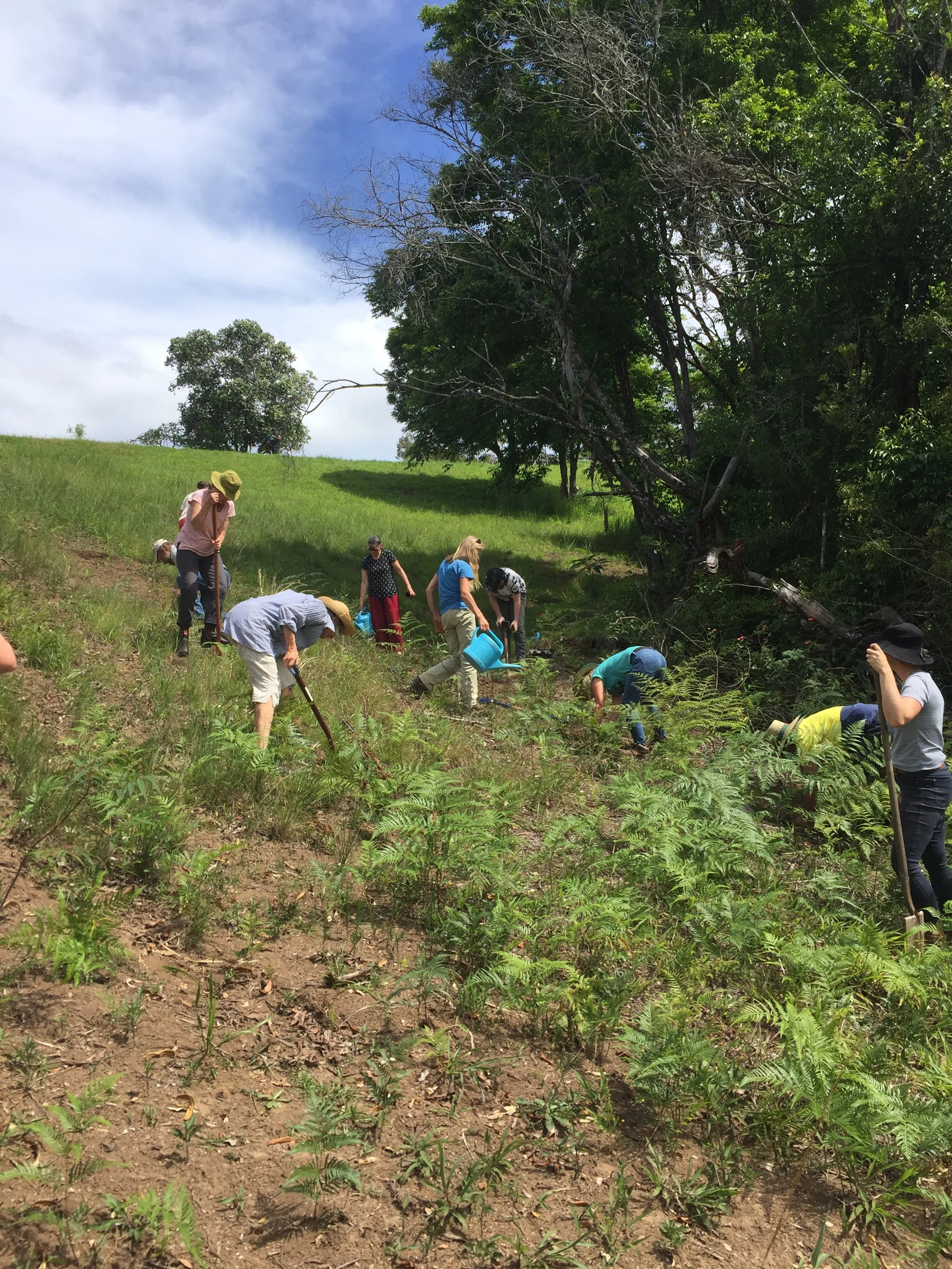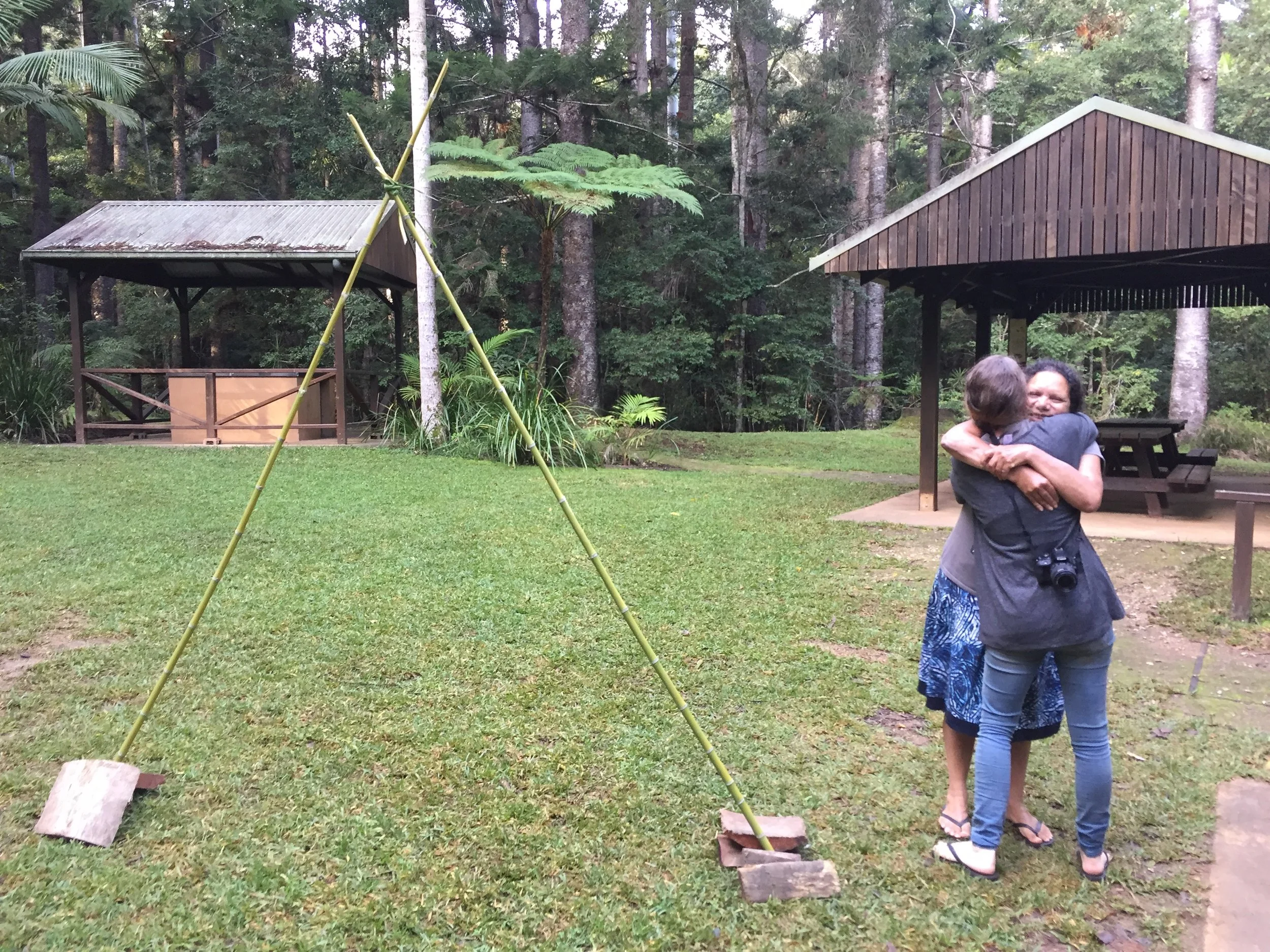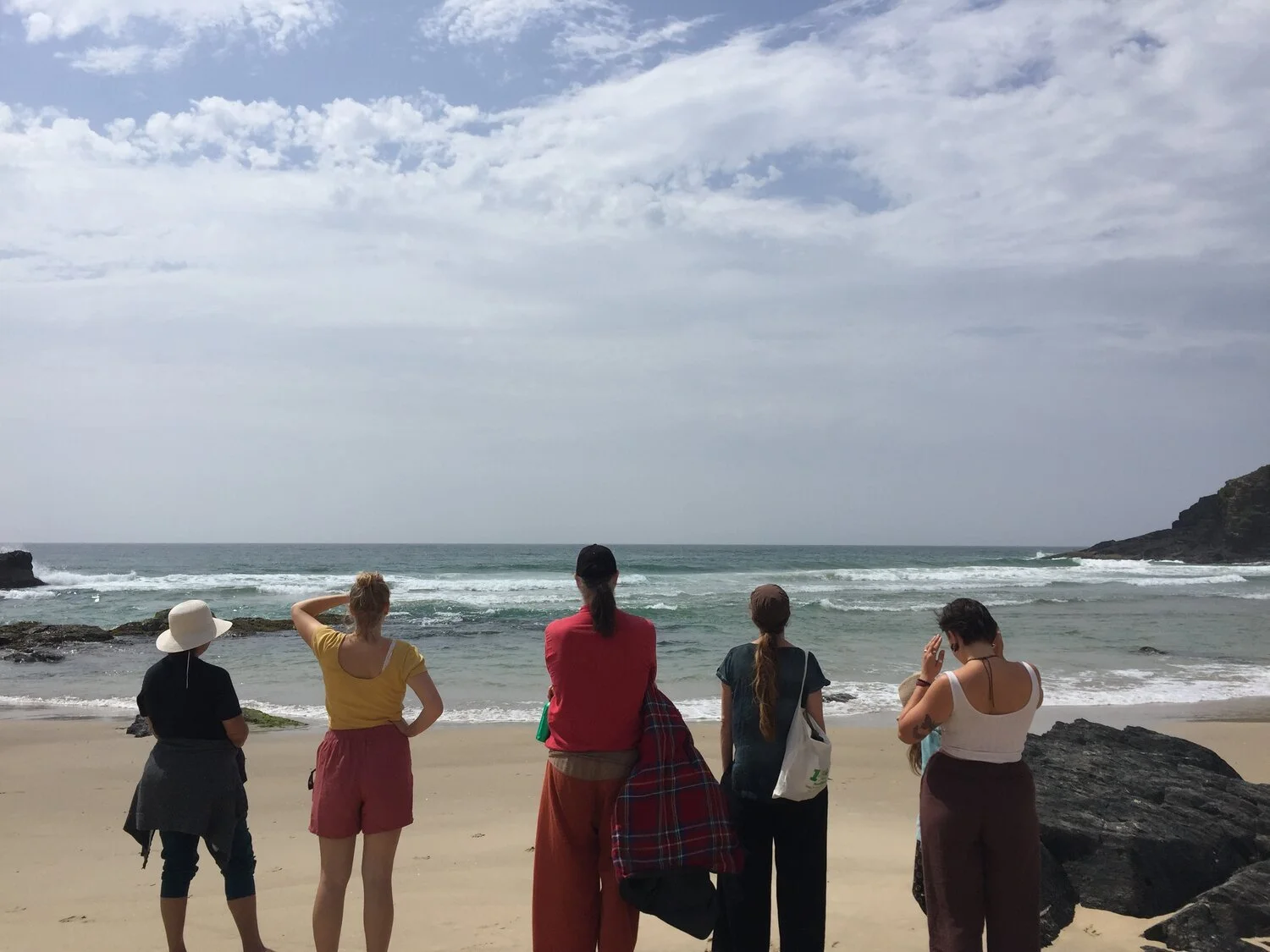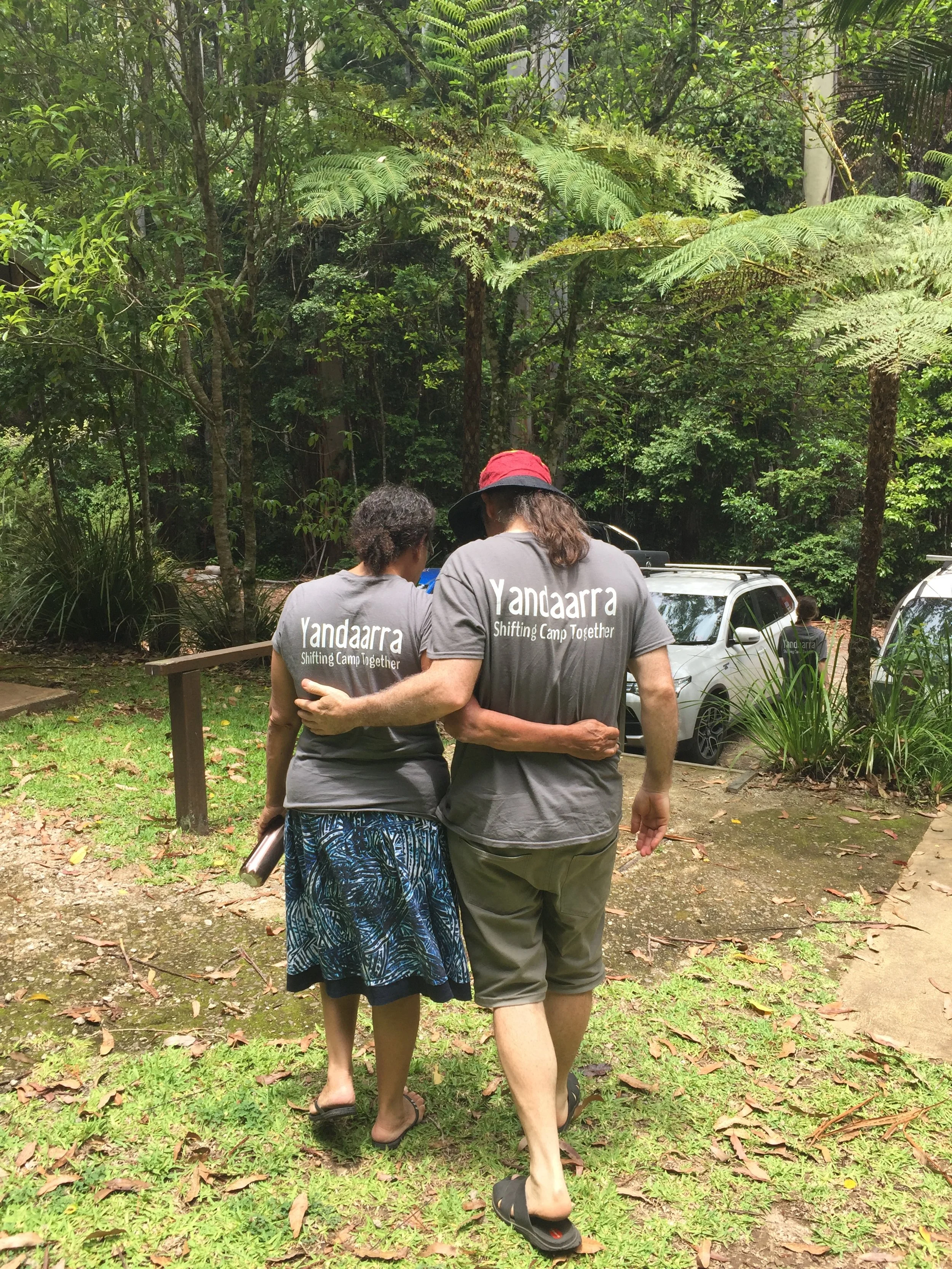My name is Liz, and I write to you as a non-Indigenous member of Yandaarra, a living intercultural research collaboration guided by Gumbaynggirr Country and the wisdom of the Old Fellas (Gumbaynggirr Ancestors). Yandaarra is led by Aunty Shaa Smith, Uncle Bud Marshall, and future Elder Neeyan Smith, and also includes non-Indigenous academics from the University of Newcastle, Sarah Wright, Lara Daley, and Paul Hodge. The name itself, from the Gumbaynggirr language, means ‘to shift camp together.’ This is what our research, and the journey we invite you on, is about: shifting camp together, in relationship with ourselves, each other, and Country, including the more-than-human beings with whom we share this world.
This learning experience is an offering of learning that asks more than the accumulation of knowledge. It invites you to take up what is yours to tend to - as a person, a practitioner, and a member of this shared world. It’s a call to nurture right relationships: with ourselves, each other, and with Country, and with the living systems we are part of. It is a pathway toward accountability, transformation, and a respectful engagement with complexity.
This path is one we walk together. Each of us brings our own story, our own lineage, into conversation with the teachings of Country and the wisdom offered through the guidance of Aunty Shaa and Uncle Bud. For those living and working on Gumbaynggirr Country, this is a call to respond—to step into each of our responsibilities with care, to reckon with history, and to walk forward with courage and openness. Here, responsibility is embraced. Difference is acknowledged. The work asks us to show up—to meet discomfort, to remain present, and to participate in the long and necessary process of healing.
Thank you for expressing interest in participating in a cultural experience designed to support your work as a natural resource management practitioner. In response to your interest, we’d like to extend an invitation - not simply to attend a workshop, participate in an interview, or engage in an online learning experience - but to join us in coming into something deeper: a call into accountability.
This journey begins with turning inward. It asks humans to take responsibility for the work within ourselves, rather than solely seeking answers from others. It is an invitation to reflect, to listen, and to show up with integrity in the spaces we inhabit and influence. To this end, it involves looking into what remains unspoken within us, and asking the real questions about what we carry, what remains unexamined, and how we, consciously or unconsciously, benefit from systems and histories that we may not fully understand.
If your work is within Natural Resource Management, this is an invitation to reflect with depth and intention. It asks: Why do you care for the land? What histories shape your relationship to it? Who already belongs here -and how do you enter that relationship not as a savior or observer, but as a participant in a living, breathing story?
In this context, peace, integrity, and respect are not distant or abstract. They are daily, embodied practices - a returning to listening, to vulnerability, to intentional action. So that as you tend to the land, whether planting, removing, or burning - this is an invitation to anchor yourself in that deeper commitment.
Throughout this learning journey, I invite you to find your own practice of anchoring. For me, it has been honouring gaagal (ocean) and guruuja (whale) every time I enter the ocean to swim, saying hello and thanking gaagal for offering a source of life. Gaagal’s presence in both dreams and waking life, reminding me of Sea Country as living and continuing, reminding me to stay humble and grounded, to remember the deeper calling of this work. These small rituals are not mere symbols; they are the beating heart of what it means to be part of something living.
This is a beginning. A commitment. A shared story we are writing together.



